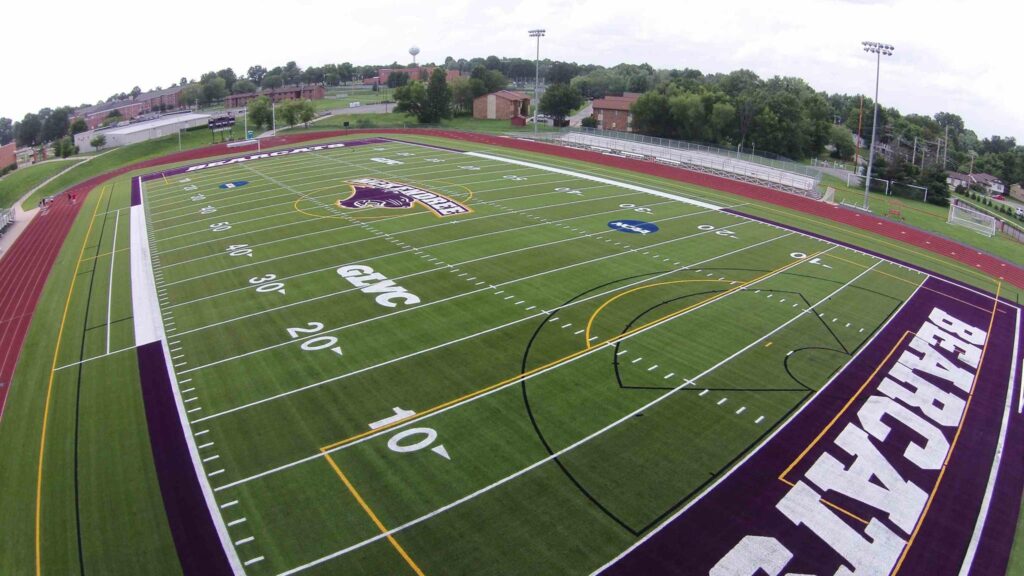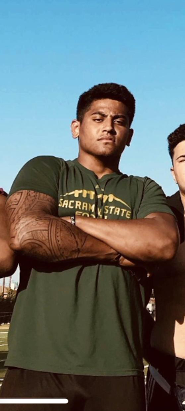
By Kevin Memminger, contributing writer
Photos by Kevin Memminger
Collegiate football seasons have been cancelled or postponed throughout many states across the country. Some seasons were pushed through for modified fall play, some have upcoming spring seasons, and others don’t have a season whatsoever. These decisions have caused disarray for hundreds of players, leaving some left in the air with possibilities of never playing the game again. During a time in which the mental health of the nation is shaky, these players are left with a piece of their identities gone.
College football players are typically some of the most recognizable people on their campuses. At times, they can literally be the face of the school–getting notoriety because of their athletic ability–which is a major impact in their social lives. The struggles of being a student athlete are more intense than they seem and take a toll on the mental health of players at times. Being in these unknown waters can cause players to have heightened anxiety and other mental health issues. Without a season, many players are having trouble coping with what to do during the “new normal.”
The discussion of athletes’ mental health is becoming more prevalent, as many athletes are choosing to share the stories of their personal mental health struggles. Athletes like Kevin Love, Brandon Marshall, and Micheal Phelps have opened up about their journeys. These athletes have considerable accolades to their name, and still go through the mental struggles that affect thousands daily.
Although many professional athletes have spoken out, collegiate players have a harder time. Collegiate players do not have the lifestyle of professional athletes, and are still trying to figure out their lives. Teenagers are facing these hardships with limited guidance. At times, these athletes do not know how to respond, and they use coping mechanisms such as drugs and alcohol.
I interviewed three collegiate players whose seasons have been cancelled to see how their mental health has been impacted throughout this time. All of the players will be having a season in the spring semester. I interviewed junior Tyler Wilder, who plays linebacker for Kentucky State University, sophomore Moses Ale, who plays defensive end for Lindenwood University, and freshman Sebastian Lasak, a wide receiver here at McKendree.
Lasak, from Richards High School in Oak Lawn, IL, thinks that the season being delayed gives him more time to work.
“I have more time to grind, and more time to get adapted to college life. I am excited for my collegiate journey to start,” Lasak said.
Wilder said that not having a season has been frustrating for his mental health, especially living on campus.
“I think without a season, I could be doing the same amount of training at my own home,” Wilder said. “It’s frustrating to be on campus and not have the opportunity to go to practice, and not experience my Junior season. I haven’t felt like myself.”
Wilder says that his anxiety has heightened due to COVID restrictions.
“I am a very active person in my daily life,” Wilder said. “I can’t do football related activities and I am stuck in my room at times. I get bored and things just begin to seem repetitive.”
Ale also spoke about the struggles he has faced with having his season delayed. He has struggled with being new to the team during this murky time.
“It’s tough to be a new player, and it has also been tough to stay inside and social distance,” Ale said. “Every year before this one I have been out on the field during this time and it’s weird to not be out there.” Ale spoke about missing events such as Homecoming. “Homecoming is the most lit time of the year and I hate that I don’t get that first experience because of COVID.”
These players are similar to many more out there whose mental health has been drastically affected during this time. According to The Jed Foundation, a non-profit organization that protects emotional health and prevents suicide for teens and young adults, college students already face struggles with mental health. “The average age of onset for many mental health conditions is the typical college age range of 18 to 24 years old” (Jedfoundation.org). These athletes have a lot on their already stacked plate, and this season being gone can have longer lasting effects than any game that could have taken place this football season.


Great article. The mental health of athletes is hardly talked about and when it is, we talk about the stress from the game. You did a great job of pointing out how not competing or participating affects things outside of the sport.
I really liked this article. Being a student athlete, this article is very relevant and relatable. It does feel like some of my identity is lost without football as you mentioned in your piece. I think what’s important is that we all find a way to keep going. We have to stay motivated and find out what is truly important past the sport we love. I know football is my passion, but without it at the moment I’m taking time to enjoy my family, and work on myself.